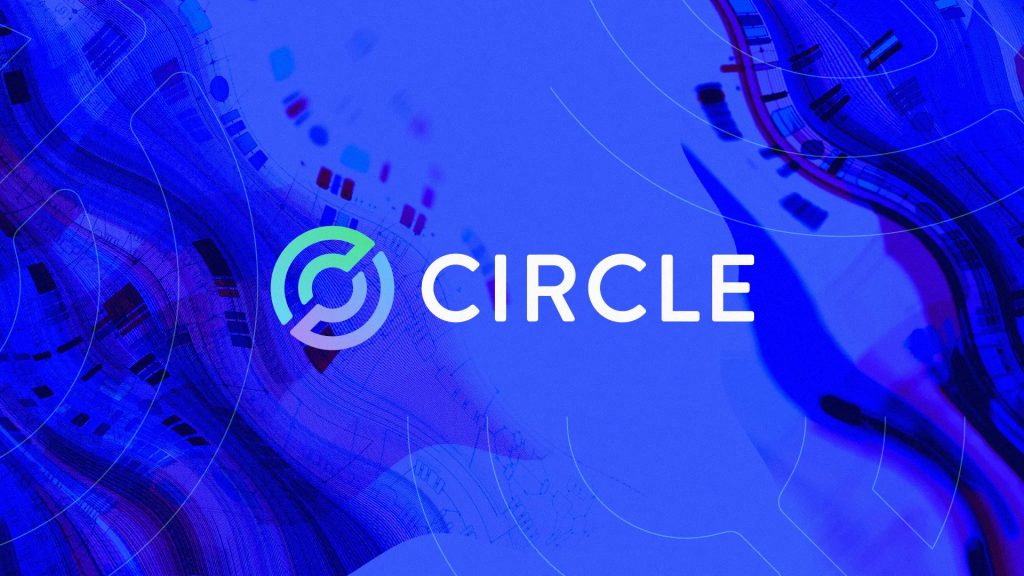[#title_feedzy_rewrite]
![[#title_feedzy_rewrite]](https://postcryptocoins.com/wp-content/uploads/2025/06/ezgif-2-a746c9d1da-1024x576-DuJ7Y7.jpg)
Circle and Matera have announced a strategic partnership enabling traditional banks in Brazil to support multi-currency operations through…
Circle and Matera have announced a strategic partnership enabling traditional banks in Brazil to support multi-currency operations through stablecoin integration. The collaboration uses Matera’s Digital Twin ledger technology to allow Brazilian reais, US dollars, and USDC to coexist in single banking environments, eliminating correspondent banking delays and also reducing costs significantly.
Also Read: Ripple CEO: Stablecoin Law Coming by August After $9B IPO
How Brazil’s Matera and Circle Advance Stablecoin Banking

Circle’s partnership with Matera addresses critical infrastructure challenges that have been limiting stablecoin payments adoption in traditional banking right now. Brazilian fintech Matera is partnering with leading stablecoin issuer Circle Internet Group Inc. to allow traditional banks in Brazil to support multi-currency operations, and this represents a major step forward for the Brazil fintech partnership sector.
The partnership will leverage Matera’s real-time ledger, Digital Twin, to allow banks to hold stablecoin balances directly within their platforms. This will enable Brazilian reais, US dollars and stablecoin USDC to coexist in a single environment, facilitating payments and eliminating the need for a correspondent banking system, which often brings settlement delays and added costs from intermediaries.
At the time of writing, this multi-currency banking approach is being seen as a game-changer for institutions that have been struggling with legacy infrastructure limitations. The digital twin ledger technology provides banks with an efficient way to modernize their services without completely overhauling their existing systems.
Jeremy Allaire, Co-Founder and CEO at Circle, had this to say:
“There are many powerful opportunities on the horizon when Brazil’s fintech-forward ecosystem converges with the world’s most accessible dollar platform.”
Digital Twin Ledger Technology Powers Multi-Currency Banking
The collaboration between Circle and Matera leverages proven technology that currently serves two-thirds of global banks and also one-third of all banks in the Brazil fintech partnership networks. Digital Twin operates alongside existing core banking platforms, enabling real-time transaction authorizations and balance updates 24/7 without requiring costly system replacements.
This Digital Twin ledger solution addresses a fundamental problem that many financial institutions face right now. Financial institutions designed traditional banking systems for weekday business hours, not the always-on digital economy that modern consumers demand. Banks utilizing this system can process transactions even during core system maintenance, ensuring continuous USDC adoption and service availability.
Carlos Netto, Co-Founder and CEO of Matera, stated:
“Core banking solutions were not built for digital transactions and instant payments, yet replacing them is not realistic – it can take years to accomplish, is prohibitively expensive and incredibly risky. But banks must do something to keep pace in a digital world.”
The technology supports various account types including demand deposits, savings, and also cryptocurrency holdings within unified frameworks. This approach to multi-currency banking allows institutions to offer expanded services while maintaining their existing infrastructure, which is particularly important for risk-averse financial institutions.
Also Read: Circle IPO Priced at $31: $1.05B USDC Issuer Debuts on NYSE
Regulatory Framework Supports Circle and Matera Expansion
Brazil’s regulatory environment supports this Circle and Matera partnership expansion into mainstream banking services. At the time of writing, Brazilian authorities have been signaling increased openness to stablecoin payments integration within traditional banking frameworks.
Roberto Campos Neto, Brazil’s Central Bank chief, said:
“Stablecoins and asset tokenization should be regulated in the country next year.”
This regulatory clarity creates favorable conditions for the brazil fintech partnership to expand beyond pilot programs into mainstream banking services. The collaboration eliminates traditional correspondent banking intermediaries that cause settlement delays and also increase transaction costs significantly for institutions.
Banks can now offer customers direct access to multi-currency banking services without establishing separate overseas relationships, reducing operational complexity while expanding capabilities. The Digital Twin ledger technology enables this streamlined approach by handling multiple currency types and stablecoin balances simultaneously.
The partnership demonstrates how established fintech solutions can integrate with emerging stablecoin infrastructure to create new banking capabilities. As financial institutions navigate digital asset transitions right now, collaborations like Circle and Matera provide practical pathways for USDC adoption without massive infrastructure overhauls that institutions often fear.
The success of this partnership may serve as a model for similar collaborations across other emerging markets where traditional banking infrastructure requires modernization to support digital asset integration.

